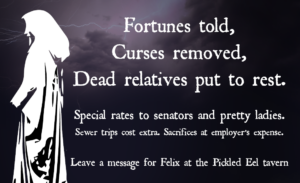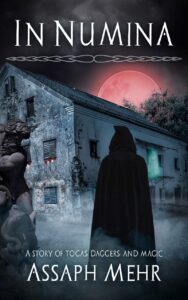by James Scott Bell
@jamesscottbell
Don’t talk of stars burning above. If you’re in love, show me!
Tell me no dreams filled with desire. If you’re on fire, show me!
– Eliza Dolittle in My Fair Lady
 How to describe a character’s emotions is, of course, one of the most important tools in the fiction toolbox, right next to the plot caulk, the dialogue drill, and the scene saw.
How to describe a character’s emotions is, of course, one of the most important tools in the fiction toolbox, right next to the plot caulk, the dialogue drill, and the scene saw.
And there are, as we all know, two choices: showing and telling. A good many critique group sheriffs will insist that you must never tell (name) an emotion. Never a simple Nancy was worried or Bob was frightened.
Well, I shot the sheriff (figuratively speaking!). It all depends on what I call The Intensity Scale. Think about the emotional intensity of a scene on a scale of 1-10, with 1 being nearly catatonic and 10 a loss of control like the “Leave Britney alone!” guy. And think of 5 as the demarcation line.
A scene can travel, and usually does, from below the line to above the line.
My rule guideline is that any emotion below 5 can, and usually should, be named. If Nancy is worried about how the meatloaf will turn out, you don’t have to go into sweaty palms and racing heart. That’s too much (unless the meatloaf is being prepared for Hannibal Lecter and the cops are nearby). Just write, Nancy was worried about the meatloaf.
But when you go over 5, you should show the emotion. The goal is to help the reader feel, not just know, what the emotion is.
So how do we show when we’re in the intense portion of a scene?
Nancy Kress, my former colleague at Writer’s Digest, had a great article on that in the January, 1993 issue. She gives five ways. Here they are, with my comments.
Physical Reaction
This is the one we usually go to first. Because it’s effective. Rendering how the character feels physically helps the reader vicariously feel it, too.
The trick is to find original ways to do it. Readers are used to sweaty palms, racing hearts, and twisting guts.
Does that mean never using them? Not at all. Just give them a little boost:
Her hands were slick and slippery now.
Her heart thrummed like a souped-up engine.
His stomach rocked in a greasy hammock. (This is like something I read once in a Stephen King story, but can’t remember which one. Anyway, you get the idea).
So: Don’t just grab the first description that comes to you. Play around a little. Add your touch of originality.
Action
Actions speak louder than words, right? You can always show the character doing something as a result of the emotion.
Again, watch out for the instant answer. An angry boss pounding his fist on the table, for example. That’s expected. Add something to it.
How about pounding a coffee mug down, spilling the brew?
How about yanking out a drawer, scrambling the contents?
A good exercise is to visualize the moment and let your character improvise, try different things. Go a little wild. You’ll hit on something surprising that seems right. When that happens, you know it will surprise the reader, too.
And a surprised reader is a delighted reader.
Dialogue
What a character says in the context of a scene should reveal emotion. And the way you can tell if you’ve succeeded is that you don’t need an adverb to make it clear.
Not:
“Get out of here, John!” Nancy said angrily.
“That’s the last time I pet a lion,” said Tom offhandedly.
No finer example of how it’s done is this clip from Hemingway’s story “Hills Like White Elephants.” A man and woman are sitting at a train station, sipping drinks, as the man jauntily tries to tell the woman that an abortion is no problem. (The mastery of the story is that the word abortion is never used).
“Then what will we do afterward?” [Says the woman]
“We’ll be fine afterward. Just like we were before.”
“What makes you think so?”
“That’s the only thing that bothers us. It’s the only thing that’s made us unhappy.”
The girl looked at the bead curtain, put her hand out and took hold of two of the string of beads.
“And you think then we’ll be all right and be happy.”
“I know we will. You don’t have to be afraid. I’ve known lots of people that have done it.”
“So have I,” said the girl. “And afterward they were all so happy.”
That last line hits hard. We know how she feels from the context and word choice. We don’t need said the girl sarcastically.
Setting
We waste a description of setting if we don’t use it for “double duty.” It should add to the tone of the story and reflect the character’s emotion.
In “All That You Love Will Be Carried Away,” a short story about a man’s darkest moment, Stephen King begins this way:
It was a Motel 6 on I-80 just west of Lincoln, Nebraska. The snow that began at midafternoon had faded the sign’s virulent yellow to a kinder pastel shade as the light ran out of the January dusk. The wind was closing in on that quality of empty amplification one encounters only in the country’s flat midsection.
Fading light, dusk, wind, emptiness. We are being set up to feel the inner life of the character even before we meet him.
Thoughts
This is, I think, the most powerful way to convey emotion, because it’s coming directly from inside the character. It’s also the best opportunity for originality, as there are an infinite variety of choices under two main headings: explicit and implicit. Here’s an example of explicit emotion.
I can’t open this door. I just can’t. John will kill me. But I have to. I have to.
Implicit emotion can be proffered by way of metaphor (A thousand devils poked his brain with pitchforks), dreams, and memories.
And example of using a dream is the beginning of Chapter 15 of The City by Dean Koontz:
Eventually I returned to the sofa, too exhausted to stand an entire night watch. I dropped into a deep well of sleep and floated there until, after a while, the dream began in a pitch-black place with the sound of rushing water all around, as if I must be aboard a boat on a river in the rain …
Here’s an example of memory from my novel, Your Son is Alive:
He was surrounded by cops, touched by strong hands, hearing voices, but they were growing distant, and he went into another world, long ago, seeing the Mickey Mouse balloon from Disneyland when he was four, and his dad tied the string around his wrist. But he wanted to hold it himself so he slipped the string off his wrist and held the balloon and waved it around. Then had to scratch his back and somehow the string got away, and the balloon went up, up, up and he said Oh no oh no oh no, and he could only watch, helpless, his grief expanding because Mickey was all alone in the sky, no one to help him. Unmoored.
So try this:
Go to any scene in your WIP and ask:
- Where do the moments fall on the Intensity Scale?
- Do I show or tell intense emotions?
- How might I use or more of the 5 ways?
- How can I “originalize” the showing?
Jim Butcher says the emotional component of his books is the secret of their popularity. In writing about scene and sequel, where sequel = emotion, he writes:
People don’t love Harry [Dresden] for kicking down the monster’s front door. They love him because he’s terrified out of his mind, he knows he’s putting himself in danger by doing it, he’s probably letting himself in for a world of hurt even if he is successful, but he chooses to do it anyway. Special effects and swashbuckling are just the light show. The heart of your character—and your reader—is in the sequel.
Comments welcome.






